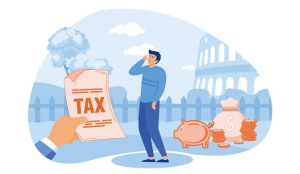Deciding where to live often involves considering various factors, one of which is the financial implications. The absence of an income tax in certain U.S. states can have significant effects on your finances. While it might seem like a no-brainer, there are nuances worth considering before making a move. In this post, we will delve into the monetary impact of residing in these no-tax states.
From cost of living differences to sales and property taxes, there are many aspects that should not be overlooked. By the end of this article, you will have a comprehensive understanding of the financial benefits and drawbacks of living in a state without an income levy.
The advantage of zero income tax states

One immediate benefit of living in a state without an income tax is the increased take-home pay. Since no money is being deducted from your paycheck by the state, you get to keep more of what you earn. This can be particularly beneficial for high-income earners who might otherwise find a sizeable portion of their salary going to state coffers. Moreover, the lack of an income tax can make budgeting simpler.
There are fewer variables in your monthly financial plan, which can make it easier to manage household expenses. Additionally, not having to deal with state income taxes can simplify the annual tax filing process, saving you both time and stress. However, it’s essential to recognize that while you may save on income tax, states need revenue from somewhere. This brings us to the hidden costs that might offset some of these benefits.
Sales and property taxes
The absence of an income tax often means higher sales or property taxes as states look to compensate for the lost revenue. For example, states like Tennessee and Texas have some of the highest sales tax rates in the country. While you may not be handing over a portion of your paycheck, you might end up spending more on everyday items. Similarly, property taxes can be significantly higher in no-income-tax states.
If you own a home or are planning to buy one, this can be a critical factor to consider. Higher property taxes can eat into the savings you gain from not paying state income taxes and may end up costing you more in the long run. Therefore, it is crucial to weigh these additional costs against the benefits before deciding to move to a state without an income tax.
Cost of living differences
Another consideration is the cost of living in these states. While the absence of a state income tax can be appealing, it doesn’t automatically mean a lower cost of living. States like Washington and Florida, both of which have no income tax, also have higher average living costs. Housing prices, utility costs, and even grocery bills can be higher than the national average in these states.
It’s important to consider these factors in your overall financial planning. A higher cost of living can diminish the advantages gained from not paying income tax. Balancing these factors is vital for a clear financial picture. Make sure to research and compare the cost of living thoroughly before making any decisions.
The hidden trade-offs
While the initial allure of higher take-home pay is enticing, there are hidden trade-offs to consider. For instance, public services might not be as robust in states without an income tax. This can include everything from road maintenance to educational funding. States rely on various revenue streams to fund public services, and the absence of income tax might mean budget cuts in crucial areas.
This can compromise the quality of life in terms of educational systems, public transportation, and healthcare services. So, it’s essential to weigh these factors when deciding to move to a state without an income tax. The direct financial benefits might come with indirect costs that affect your lifestyle.
Impact on public services
The effect on public services is one of the noteworthy trade-offs. With less revenue from income tax, states may resort to cost-cutting measures in public services. This can mean reduced funding for schools, which could impact the quality of education. Healthcare services may also suffer.
States that collect less revenue might allocate fewer resources to public health systems, leading to longer waiting times and reduced services. Additionally, infrastructure and public safety services can also be compromised. Lower funding might result in delayed road repairs and fewer law enforcement officers, impacting overall safety and convenience.
Retirement considerations
Another important factor to consider is how living in a no-income-tax state affects retirement. For many retirees, the lack of state income tax can make these states appear financially attractive. However, in retirement, other costs like healthcare and property taxes can significantly affect your financial planning.
States without income tax may have higher healthcare costs or insurance premiums, affecting your fixed retirement income. Therefore, it’s important to look at the bigger picture, taking into account all possible expenses, before making a move for financial reasons alone.
